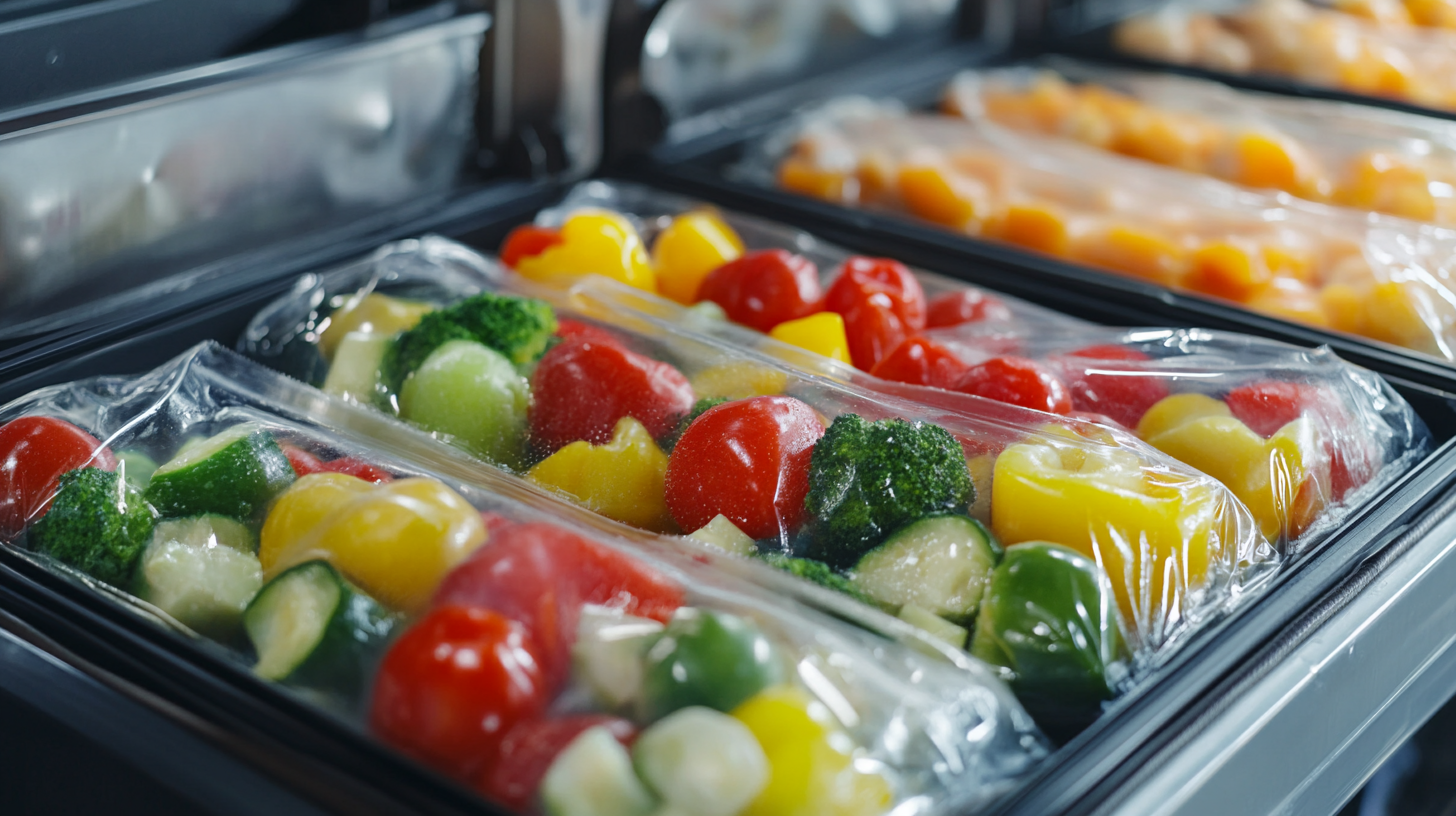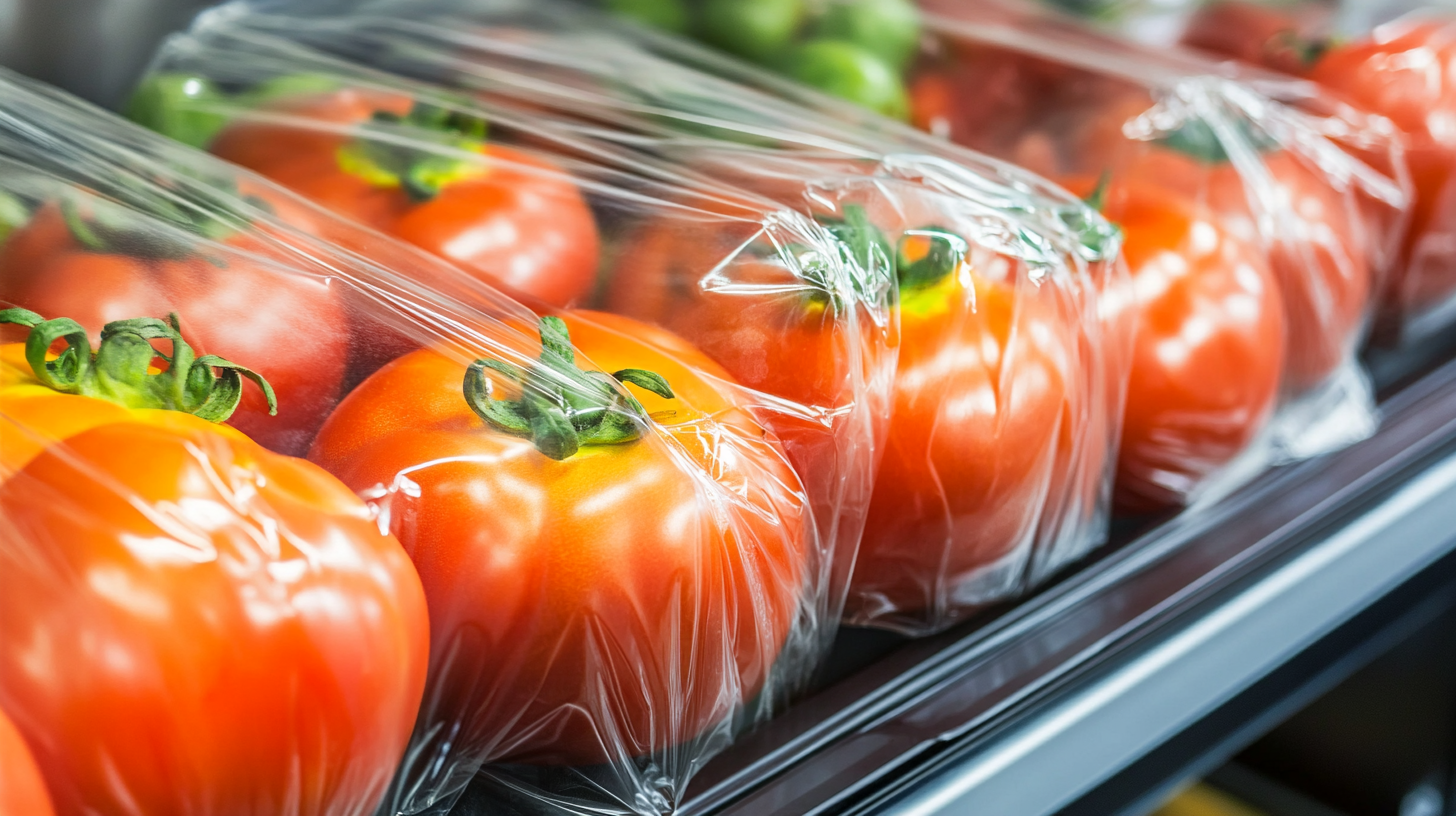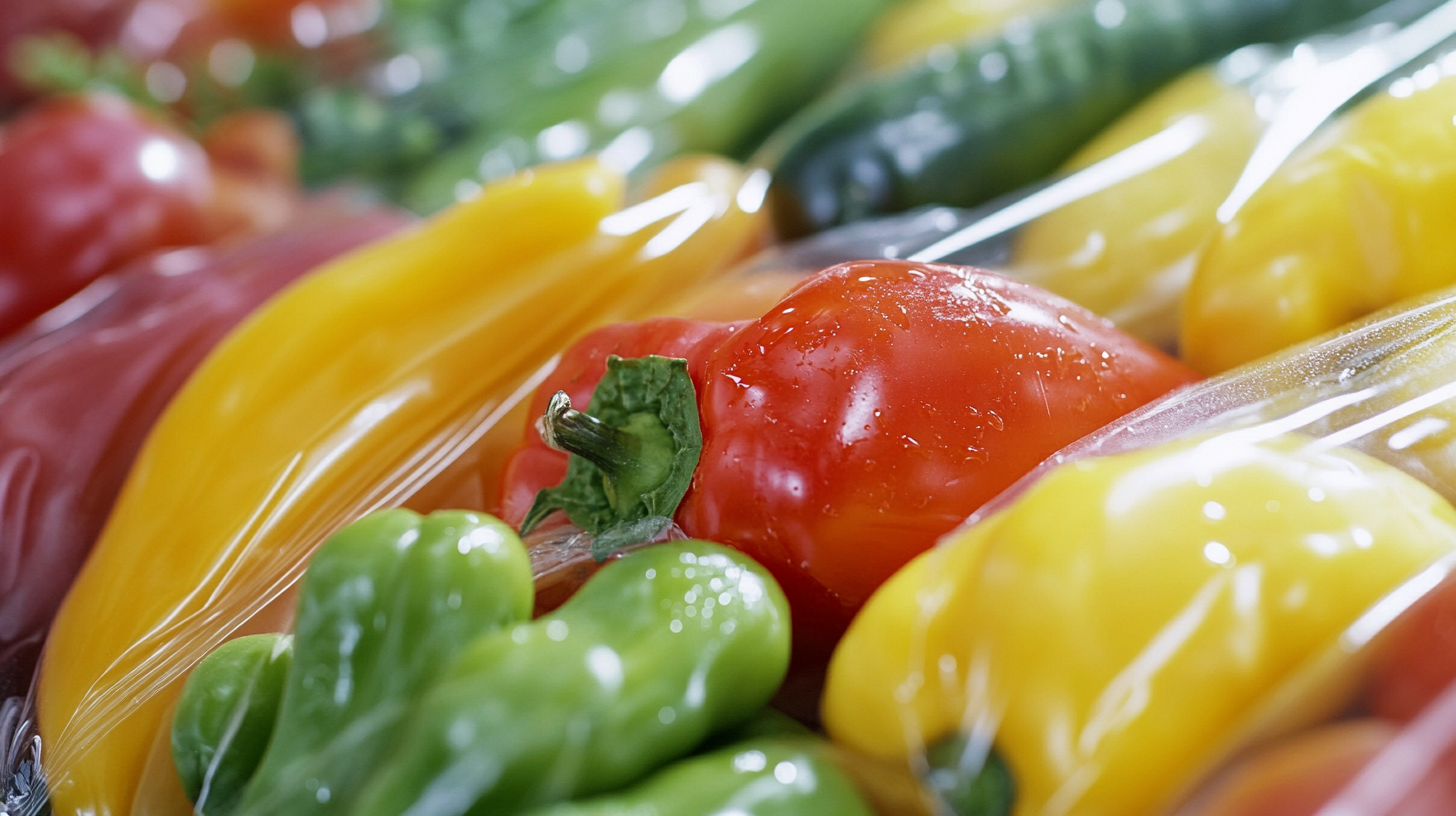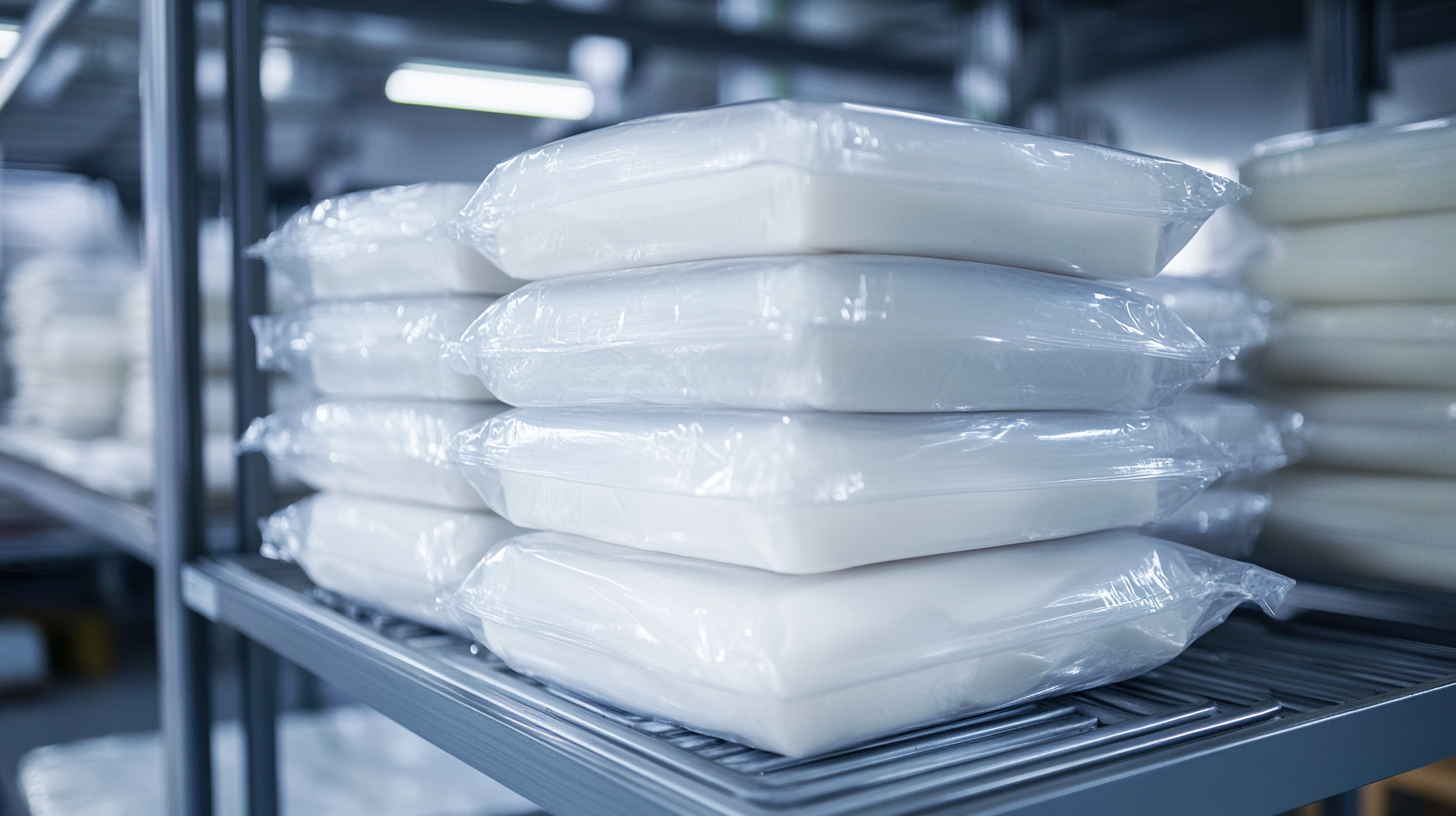Advantages of Using Food Packaging Retort Bags for Global Supply Chain Efficiency
In today's fast-paced global supply chain, the efficiency of food packaging plays a pivotal role in maintaining product quality and extending shelf life. One of the most innovative solutions gaining traction is the Food Packaging Retort Bag. According to a report by MarketsandMarkets, the global food packaging market is expected to reach USD 1 trillion by 2025, with flexible packaging solutions, including retort bags, projected to grow at a compound annual growth rate (CAGR) of over 5%. This trend underscores the increasing demand for packaging that not only ensures food safety but also supports logistics and transportation challenges faced by manufacturers and distributors alike.
Food Packaging Retort Bags offer a unique combination of sturdiness and flexibility, enabling them to withstand high-temperature processing while maintaining the integrity of the contents. Research from the Packaging Association indicates that food products in retort bags can have a shelf life of up to 12 months or longer, significantly reducing food wastage and enhancing supply chain efficiency. As more companies recognize the benefits of these packaging solutions, they stand to not only improve their operational capabilities but also contribute to a more sustainable food industry.

Benefits of Retort Bags in Preserving Food Quality Throughout Supply Chains
Retort bags have emerged as a crucial innovation in the food industry, particularly when it comes to enhancing supply chain efficiency. These packaging solutions are designed to undergo high-temperature treatments, which effectively destroy spoilage microorganisms and enzymes that could compromise food quality. By utilizing retort processing, food manufacturers can ensure that products remain safe and nutritious during their journey through the supply chain, ultimately benefiting both producers and consumers. One of the most significant advantages of retort bags is their ability to maintain the quality of food over extended periods. The packaging creates a hermetic seal that minimizes oxygen exposure, thus preserving the flavor, texture, and nutritional content of the food. This is particularly vital for ready-to-eat meals and convenience foods, which are increasingly popular in today's fast-paced world. As these products move from the manufacturer to retailers and finally to consumers, retort bags ensure that they reach their destination in optimal condition, thereby reducing food waste and increasing customer satisfaction. Moreover, the lightweight and flexible nature of retort bags facilitates more efficient transportation and storage. Unlike traditional canning methods, which can be bulky and heavy, retort bags take up less space and contribute to lower shipping costs. This efficiency not only streamlines logistics but also supports sustainability initiatives by reducing the overall carbon footprint associated with food distribution. As the global demand for convenient and high-quality food continues to rise, the role of retort bags in preserving food quality throughout the supply chain becomes increasingly pivotal.

Impact of Retort Packaging on Reducing Food Waste Globally
The global food supply chain faces significant challenges, particularly in reducing food waste, a pressing issue that impacts both the environment and economies worldwide. Retort packaging, which involves sealing food in pouches and heating it to sterilize, has emerged as a game-changer in this context. By enhancing the shelf life of perishable products, retort bags allow food to retain its nutritional value and flavor much longer without the need for preservatives. This innovation not only ensures that less food goes to waste but also supports a more sustainable supply chain.
Moreover, the lightweight and durable nature of retort bags contributes to reduced transportation costs and a lower carbon footprint. Unlike traditional glass or metal packaging, which can be bulkier and heavier, retort bags are designed for efficiency, allowing more product to be shipped in a single trip. This directly translates to decreased emissions and a minimized environmental impact associated with food distribution, which is crucial in efforts to combat climate change.
Additionally, the use of retort packaging helps address the issue of food safety. By creating a sealed environment that prevents contamination, it safeguards food products during transit, ensuring they reach retailers and consumers in optimal condition. This increase in food safety reduces the likelihood of products being discarded due to spoilage, further supporting global efforts to minimize waste and enhance the efficiency of the food supply chain.

Enhancing Shipping Efficiency with Lightweight Retort Bags
Lightweight retort bags are transforming the landscape of global shipping efficiency by significantly enhancing the logistics process. Their reduced weight not only decreases shipping costs, but also contributes to lower carbon emissions, an essential factor in today’s sustainability-conscious market. As the industry pivots towards eco-friendly solutions, these bags play a crucial role by enabling companies to optimize their supply chains while minimizing their environmental footprint.
Recent advancements in shipping technologies, such as intelligent detection systems and the launch of electric ships, underscore the industry's commitment to innovation. For instance, the EL-YOLO algorithm enhances ship detection capabilities in Synthetic Aperture Radar (SAR) images, which can lead to improved routing and processing times for shipments. In line with these innovations, lightweight retort bags can further streamline logistics. Their efficiency aligns with the global trend toward reducing bulk and improving maneuverability in transport networks.
Moreover, as companies like the Grimaldi Group engage in zero-emission projects, the adoption of lightweight materials for food packaging becomes even more critical. This focus not only aligns with the industry's environmental goals but also ensures that freshness and safety are maintained during transit. The integration of these lightweight solutions reaffirms the shipping industry's trajectory towards enhanced operational efficiency, making them a vital component in modern supply chain strategies.

Cost-Effectiveness of Retort Bags in Food Distribution
The cost-effectiveness of using retort bags in the global food distribution chain is becoming increasingly evident as companies seek innovative solutions to meet rising demand. The global stand-up pouches market, which includes retort bags, was valued at USD 24.8 billion in 2022 and is expected to grow at a compound annual growth rate (CAGR) of 8.1%, reaching USD 36.7 billion by 2027. This growth reflects the increasing efficiency that retort technology brings to food packaging, allowing for longer shelf life and reduced waste.
Retort bags are designed for high-temperature processing, effectively preserving the nutritional value and taste of food products while extending their storage capabilities. This technology not only enhances food safety but also lowers transportation costs due to lightweight materials and compact designs. As the need for efficient food delivery systems expands, the adaptability and cost savings associated with retort packaging are likely to position it as a favored option for manufacturers and distributors alike.
Moreover, recent advancements in retort pouch technology by industry leaders have opened new possibilities for food packaging, driving down production costs while maintaining high-quality standards. As businesses continue to adopt these cost-effective solutions, the retort pouch market is projected to thrive, contributing significantly to the overall growth of the packaging industry and the global supply chain efficiency.
Sustainability and Environmental Advantages of Using Retort Packaging
The use of retort packaging in the global food supply chain offers not only enhanced efficiency but also significant sustainability benefits. As consumers become increasingly eco-conscious, the demand for sustainable packaging solutions is surging. Lightweight and compact retort pouches are designed to preserve food products effectively while minimizing waste. These heat-resistant pouches are ideal for storing a variety of foods, including baby food and ready-to-eat meals, thus reducing the need for refrigeration and cutting down on energy usage during transport.
Research indicates that the biodegradable paper and plastic packaging market is projected to reach USD 31.6 billion by 2032, with a compound annual growth rate (CAGR) of 10.1%. This trend speaks volumes about the industry's commitment to sustainability and innovation in creating packaging solutions that reduce environmental impact. Retort pouches not only contribute to this growth by being recyclable but also help in decreasing food waste by extending shelf life.
Moreover, these pouches are manufactured using materials that can withstand high heat, thereby ensuring food safety while maintaining product quality. The shift toward recyclable and retortable packaging aligns with global initiatives aimed at reducing single-use plastics, supporting a healthier planet, and fostering a more sustainable future for the food industry. By prioritizing such innovative packaging solutions, companies can enhance their operations and resonate with a growing consumer base that values sustainability.

 中国
中国
